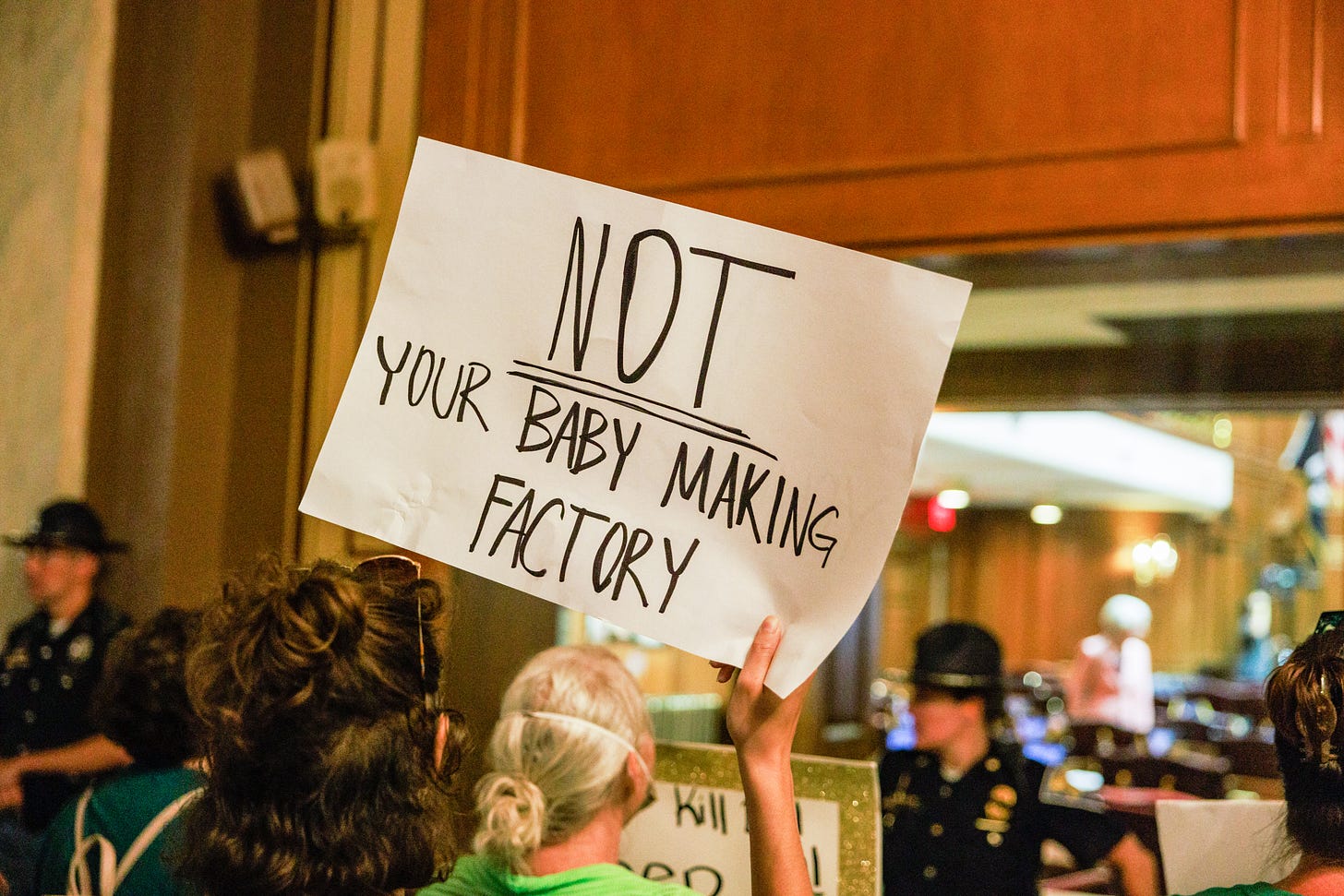I’ve been thinking a lot about a tweet from Students for Life: “Consent to sex is consent to pregnancy.” It’s abhorrent, obviously, but it’s also not an uncommon argument. We’ve all heard it a million times: If women don’t want to get pregnant, they shouldn’t have sex.
No one would make the same argument about any other normal, everyday human action, of course: No one would say that if you cook dinner, you consent to be burned by a hot stove. Or that if you drive a car, you consent to getting in an accident. (If you take issue with comparing pregnancy to injury, I suggest you take a good look at what happens during pregnancy—especially in this country.)
Sex is treated differently, especially if you’re a woman. Once a woman has sex, all bets are off. She has given up any claim to her body, and any right to complain about what might come next. (Literally: Up until 2008, it didn’t constitute rape in Maryland if a woman withdrew consent during sex because after penetration, the law said, “the damage was done.”) I wrote about this quite a bit in The Purity Myth, and the short version is: Once a woman has sex, she is no longer a person.
That’s why you can’t talk about the anti-abortion position without talking about violence against women and rape. It’s not just that the two are connected through control of women’s bodies, forcing unwilling women to do something they don’t want to do, and the belief that ‘impure’ women get what they deserve. The entire ethos of those who think women should have no say about what happens to and inside of their own bodies comes from the same exact patriarchal underpinning that says women exist solely for men and their desires—be it sex or procreation.
To believe women should be forced into pregnancy is to ascribe to a rapist mindset.
Yes, even anti-choice women. Just as some women blame victims of sexual assault, those who would legislate away other women’s rights believe that their complicity will keep them safe: That bad things happen to ‘bad’ girls, and that they are ‘good.’
Back to that tweet, for a moment:
If pregnancy is a miracle and a gift—if motherhood is women’s natural role—why must women be forced or tricked into it? As Moira Donegan wrote in response, “misogynists act as if ‘consent’ is something women are to be lured and tricked into, and then never allowed out of.”
To them, anything other than straight, married, procreative sex is a sin—and pregnancy is the punishment.
Who gets punished in a rape/forced pregnancy culture? Women who are seen as undeserving, impure, and ‘other’. In the same way that women of color, low-income women, immigrant women and those in the LGBTQ community are more likely to be sexually assaulted and blamed for the violence against them them, marginalized groups are disproportionately targeted and punished by anti-abortion laws.
The rapist mindset is, in part, what makes anti-choicers so horrified by abortion. To end a pregnancy is to exert control over your own body and future: Abortion allows women to get the education and jobs they want, to not be tethered to abusive partners, to stay financially secure. To those who believe women should be passive objects, that kind of independence is intolerable.
It’s not a coincidence, for example, that the anti-abortion group Feminists for Life calls abortion after rape “misdirected anger.” To them, any demonstration of power over your own life is akin to fury or violence. Or consider how Michigan’s Republican gubernatorial candidate, Tudor Dixon, defended her belief that a raped teenager shouldn’t be able to have an abortion; she said there could be “healing” through the baby. In the conservative mind, women can only be made whole after rape through more submission—in this case, to the state.
Sex is not consent to pregnancy. When the vast majority of people have sex, it’s to feel good or closer to another person. If and when pregnancy becomes part of the equation, it constitutes a tiny percentage of most people’s sexual lives. Conservatives and anti-abortion advocates may not approve, but that doesn’t make it any less true. And forcing people into pregnancy as a demonstration of that disapproval isn’t the moral high ground—it’s just force.






